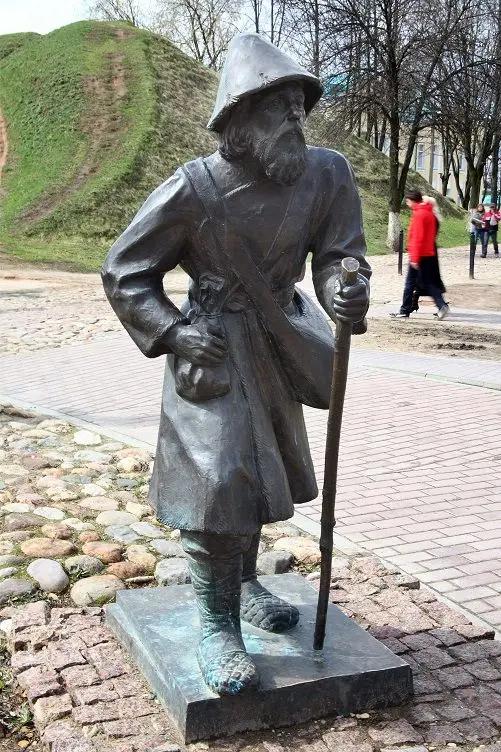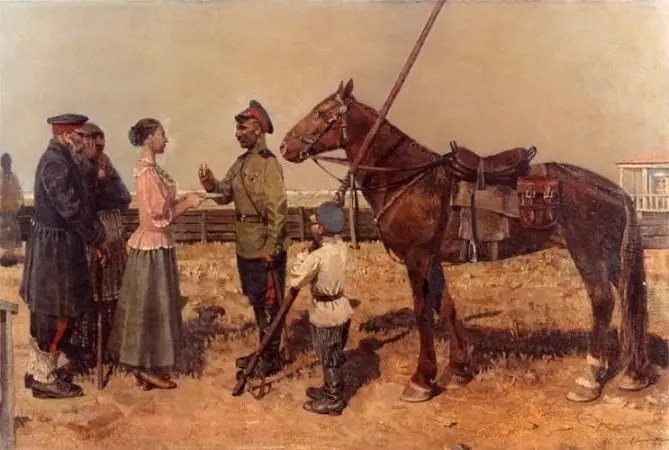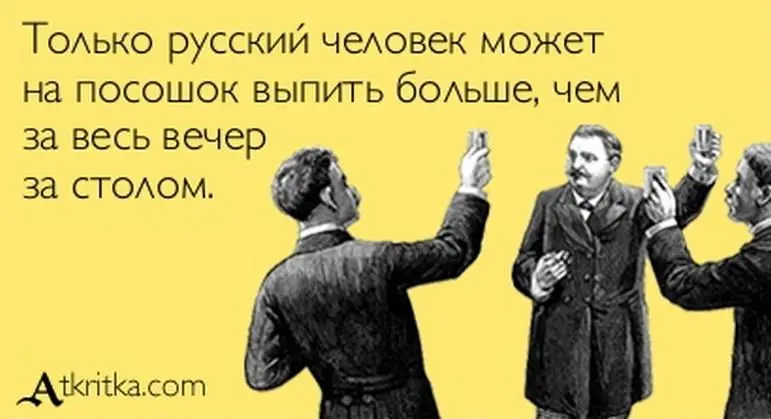The culture of drinking in Russia has a long tradition, the first of which historians date back to the XNUMXth century. In the pre-Petrine era, feasts were accompanied by a whole series of obligatory ceremonies, in which hosts and guests took part. Now most of them are forgotten, but some toasts and rituals have survived to this day. Often we pronounce them without really thinking about the meaning of the words, and even more so about their origins.
Drink “on the road”
One of the most well-established traditions is to pour a glass “on the staff” before leaving. On the one hand, the rite may not seem entirely logical, because the last dose may be the reason that the guest simply does not get to the house. Over time, this has become just a familiar wording that is pronounced before seeing off the participants in the feast. But the rite appeared more than one century ago and was associated with the veneration of wanderers in Russia.
Wandering was considered a feat in pre-revolutionary Russia. The reasons why people left their home could be different, but the goal was the same – seeking God. There were wanderers on the roads, eager to find divine truth in their wanderings, among them were people who consciously rejected worldly joys and chose their own path of serving the Lord. Among the townsfolk, such guests met with respect and honor, it was considered an honor to shelter a poor traveler, warm him up and pour a cup or two.

In most cases, a thick staff served as an indispensable attribute of wanderers. Leaning on a stick, one could rest on the way; it also served as a good weapon in defense against robbers. The staff had a thick end, where you could easily put a glass of strong drink. This is what the hosts did when seeing off their dear guest. If the wanderer could drain the cup without touching it with his hands, he was safely released on the road. Otherwise, the traveler was left to spend the night. So the expression “drink on the road” meant, first of all, concern for the safety of the traveler.
Over time, the tradition spread to all participants in the feast. The last glass became a kind of test for intoxication and served to test the ability of guests to return home on their own. If the test was successful, the person was seen off, if not, they were persuaded to stay overnight.
Drink on horseback
The Don Cossacks have a whole series of toasts that accompany the departure of guests. Since the majority had riding horses as a means of transportation, it was proposed to drink “on horseback” at parting.
Another name for the cup is “stirrup”. The expression is associated with long-standing traditions that appeared among the Cossacks during military service. Before the campaign, it was supposed to boil a large vat of mead, and the drink was served to the defender of the fatherland before boarding. It was poured into a goblet, which was called “stirrup”.

How to drink “on the road” and “on a horse”
Russian traditions are not limited to farewell toasts. There are at least five names of glasses that folk wisdom prescribes to drink in a certain sequence before the traditional cup “on the road.”
Priority:
- Table – drunk at the table, as a sign of respect for the owners to the bottom.
- Lifting – before the guest was about to rise from the table.
- On the move of the foot – at the first movement towards the door.
- Zaporizhzhya – drunk right outside the threshold of the house.
- Courtyard – at the exit to the courtyard.
Cossack folklore has its own variants of toasts, which are mostly associated with horses. In third place after the “table” and “stirrup” glasses is the so-called “barrowed”. The name is associated with the tradition that was adopted in the military campaign. Since the chances of meeting the enemy in an ambush increased in the hilly area, in the end, the Cossacks were offered a “barrowed” cup with a wish to avoid trouble. At a later time, the name became associated with farewell at the edge of the village before leaving for the service.
The final toast was called “a horse in the face.” The last drops of alcohol splashed on the animal’s head. It was believed that the horse would remember the smell and come to the house even if the Cossack fell into a sound sleep.

As a rule, exact adherence to traditions is rare. The most common toasts are “on the move” and “on the road”, the rest are used only by true lovers of folklore.









